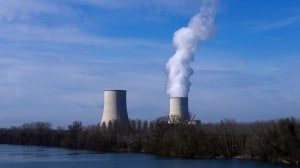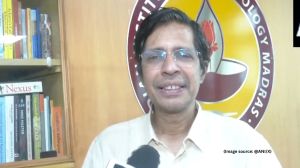Krishna EPW Raj passes away
Krishna Raj, who put 34 years of his life into the Economic and Political Weekly making it into a journal that dealt with issues marginalise...

Krishna Raj, who put 34 years of his life into the Economic and Political Weekly making it into a journal that dealt with issues marginalised in popular discourse, died in Mumbai today as quietly as he had lived. He is survived by his wife, son and a daughter.
Raj joined the Economic Weekly as EPW was then called before 1966, straight after his post-graduation from Delhi School of Economics. Three years later, he was the editor until he passed away after a heart attack.
The journal, called by loyal readers the ‘‘moral conscience of independent India’’, traced the patterns of change in the country and more importantly, tackled critical issues like environment and women’s rights long before they became mainstream. ‘‘He is responsible for the radical but independent weekly. Definitely it is passing of an era with him,’’ said Sumant Banerjee, a friend and political columnist for EPW since the ’60s.
At a personal level, he was a ‘‘gentle, affectionate soul, soft-spoken yet very firm in his beliefs,’’ he added.
A telling example of his self-effacement was the fact that when 15 years ago, EPW was involved in a sedition battle, there was no picture of Krishna Raj to be handed out to the media. He refused to be photographed and seen in public. Never seen but heard through his journal, both his critics and admirers described him as ‘‘liberal’’ and ‘‘tolerant of diverse views’’.
According to Padma Prakash who worked as assistant editor in EPW, he not only allowed others to grow and learn from him, ‘‘he saw the journal as a platform for discussion of all kinds of views’’. That is something most academicians are grateful for. ‘‘I can’t see anyone stepping in his shoes. He was always open to suggestions,’’ said Anjan Mukherjee, a professor at JNU and a regular contributor.
‘‘EPW, in his time, managed to combine the narrow academic sphere and the wider public platform — something an academician always dreams of,’’ said Rajeev Bhargava, a political scientist. ‘‘In recent times, EPW had made a successful shift from being Left of Centre to being moderate,’’ said economist C.P. Chandrashekhar.
Photos


- 01
- 02
- 03
- 04
- 05





























